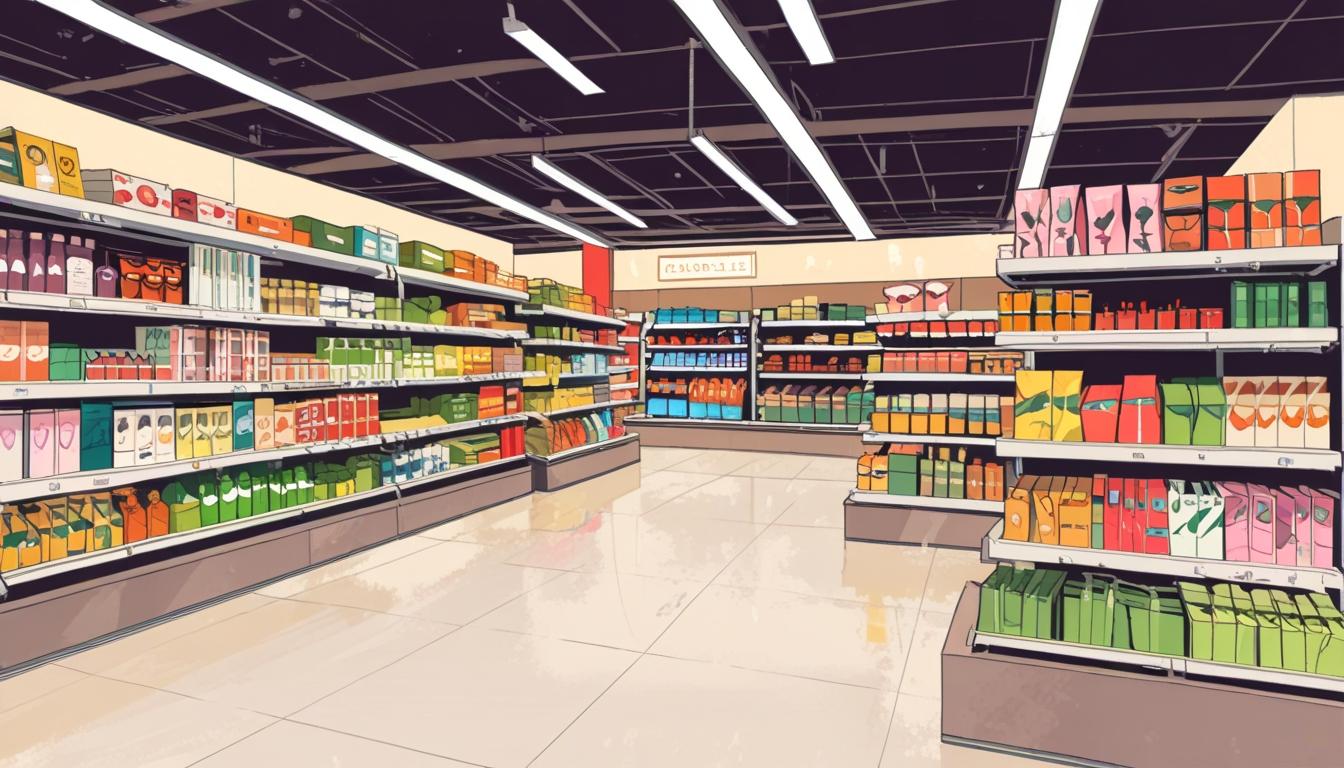Circana’s report reveals the rising dominance of Private Labels in Europe’s FMCG sector, reflecting changing consumer preferences and the challenges faced by National Brands.
A comprehensive report from Circana has highlighted the growing dominance of Private Labels in the fast-moving consumer goods (FMCG) sector across Europe, indicating a notable shift in consumer preferences amid inflationary challenges. The report, titled “Private Labels: Transformation for Growth,” suggests that Private Labels have successfully capitalised on changing consumer behaviours by offering affordable and high-quality products that meet demands around health, sustainability, and value.
As of March 2024, Private Labels achieved a remarkable 9.4% growth in value sales and a 2.2% increase in volume sales across the six largest European markets, known as the EU6, which include France, Germany, Italy, the Netherlands, Spain, and the United Kingdom. Their market presence has grown to 39% in value sales and 46% in unit sales, establishing them as key competitors to National Brands.
Ananda Roy, Senior Vice President of Thought Leadership at Circana, commented: “Private Labels have redefined the competitive landscape, not just by offering lower prices but by consistently delivering quality, innovation, and sustainability. Their success underscores a broader consumer shift towards brands that align with their values.”
Interestingly, investment in sectors like Chilled & Fresh Foods, Household Care, and Personal Care has resulted in the highest penetration for Private Labels, with Baby Food and Pet Non-Food categories witnessing growths of 2.3 percentage points and 2.2 percentage points, respectively. Spain leads the charge with an impressive 48% market share in Private Labels, followed closely by Germany at 43% and the Netherlands at 42%.
While National Brands have attempted to respond with promotional strategies to regain footing, they faced a challenging environment with only modest recovery. It was noted that 43% of National Brand units sold in the UK were sold on promotion, yet they continue to fall short in overall growth compared to their Private Label counterparts.
The report also addresses concerns regarding a slowdown in innovation within the FMCG sector, highlighting a 17% reduction in new product launches attributed to supply chain disruptions and a focus on core product ranges. This slowdown poses a risk of the FMCG sector becoming an ‘innovation desert’, pushing both Private Labels and National Brands to enhance innovation as a critical driver of organic growth.
Looking to the future, Circana forecasts continued growth momentum for Private Labels buoyed by investments in range expansion, premiumisation, and sustainability initiatives. Consumer preferences leaning towards health, wellness, and ethical consumption are expected to shape future purchasing decisions, emphasising the need for brands to align their offerings with these evolving values.
The economic climate also hints at a cautiously optimistic outlook for the FMCG sector, with projected GDP growth in the Euro area for 2025 at +0.4 percentage points year-on-year. Circana suggests that while Private Labels are likely to maintain their trajectory, National Brands may narrow the gap by embracing innovation and diversifying their product portfolios.
Roy further stated, “2024 marked a pivotal year for the FMCG industry, with Private Labels setting a new standard for growth and innovation. Looking ahead, 2025 will be a defining year for both Private Labels and National Brands, as long-term success will hinge on their ability to innovate and connect with evolving consumer needs.”
In summary, the report indicates a transformative period for the FMCG sector, with Private Labels gaining significant traction in the market while National Brands seek new strategies to stay competitive.
Source: Noah Wire Services
- https://www.circana.com/intelligence/press-releases/2024/promotional-boosts-fail-to-lift-volume-sales-in-europe/ – This URL supports the claim about the growing dominance of Private Labels in Europe, highlighting their increased market share and consumer preference shifts amid inflationary pressures.
- https://www.circana.com/intelligence/press-releases/2024/mediterranean-momentum-spain-and-italy-propel-fmcg-growth-amidst-a-slow-recovery-across-northern-europe/ – This report corroborates the growth of Private Labels in Europe, particularly in Spain and Italy, and discusses the competitive landscape and strategies for both Private Labels and National Brands.
- https://www.mass.gov/guide-to-evidence/article-xi-miscellaneous – Although not directly related to FMCG, this guide on evidence can be used to assess the reliability of claims made in reports like those from Circana, emphasizing the importance of corroborating evidence.
- https://www.statista.com/topics/4141/consumer-goods-in-europe/ – This URL provides general information on the FMCG sector in Europe, which can support broader trends and shifts in consumer preferences discussed in the article.
- https://www.euromonitor.com/ – Euromonitor provides market research that can support claims about consumer trends and market shares in the FMCG sector across Europe.
Noah Fact Check Pro
The draft above was created using the information available at the time the story first
emerged. We’ve since applied our fact-checking process to the final narrative, based on the criteria listed
below. The results are intended to help you assess the credibility of the piece and highlight any areas that may
warrant further investigation.
Freshness check
Score:
9
Notes:
The report references data as of March 2024, indicating recent information. However, without further context on the publication date of the report itself, the freshness score is slightly reduced.
Quotes check
Score:
8
Notes:
Quotes from Ananda Roy, Senior Vice President of Thought Leadership at Circana, are included but could not be verified as the first use. The original source of these quotes is likely the Circana report itself.
Source reliability
Score:
7
Notes:
The narrative originates from Grocery Trader, which is not as widely recognized as major news outlets like the BBC or Reuters. However, it appears to be a specialized publication in the grocery sector.
Plausability check
Score:
9
Notes:
The claims about Private Labels gaining market share are plausible given current consumer trends towards affordability and sustainability. The report’s focus on specific sectors and countries aligns with broader economic and consumer behavior shifts.
Overall assessment
Verdict (FAIL, OPEN, PASS): PASS
Confidence (LOW, MEDIUM, HIGH): MEDIUM
Summary:
The narrative appears to be based on recent data and plausible trends in the FMCG sector. While the source is not a major news outlet, the information aligns with current consumer preferences and economic conditions. However, the lack of verification for the quotes and the source’s lesser recognition slightly reduce confidence.













